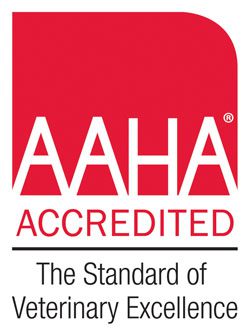Hello! True Care will be closed Friday, July 11th through Monday, July 14th to accommodate a veterinary conference. Please be safe!
Health is based on many things. Some things, such as genetics, are beyond control, but thankfully, may other health components are. These are providing balanced nutrition, ensuring hydration, controlling parasites, minimizing exposure to disease and maintaining an active physical and emotional lifestyle – just as in people! Let True Care help achieve these things!


True Care VH generally recommends the following preventative care measures for your dog. These recommendations, specific to our geographical area, address the major health issues facing our pets and which can be prevented or controlled. This is a brief guide – dog owners have access to a wealth of information pertaining to dogs health and life styles.
We DO NOT recommend treatments or procedures which are harmful to your dog, however, no vaccine or treatment is without the potential for problems. Feel free to discuss any aspect of our recommendations with you so that the wellness needs of your pets are maximized. As with any aspect of health – the emphasis should be on routine prevention. We have provided links to some of the best online resources for you to gain more information! Know what care your dog is receiving – become an informed owner!
Keep the level of anxiety down on the day of an appointment – pay little attention to your dog beyond their basic needs to prevent “wind-up”.
Just as in human medical offices, we should demonstrate a basic level of courtesy and etiquette. Please help us to help your dog during the entire process. Make sure you adequately walk your dog prior to the visit so they can be relieved and be more comfortable at the clinic. Always have your dog on a leash (retractable leashes are NOT recommended – lock them if you use them). Do not allow your dog to urinate and defecate in the common areas – make sure they are adequately walked – we have a large green space for this – please pick up solid wastes for disposal. Rugs and cat trees are NOT for urinating on. Please inform us if there has been an accident so it may be cleaned promptly without exposing other dogs and their owners to animal waste.
Please keep your dog away from other dogs at the clinic – you have no idea why the other dog is there or if they may be fear aggressive. Please follow the instructions of our staff – we have safety and disease protocols designed to protect your dog. In the exam room, maintain control of your dog with a leash at all times and keep the noise and anxiety level down – please control any children as their noise and activity will not help your dog cope – we are open to answering questions from curious kids at the appropriate time. Please bring your dog’s favorite treat to be used during and after their visit – these should only be used to reward good behavior.
Please do not call your dog a “good dog” if they are behaving badly – this just keeps them behaving badly and makes a meaningful examination difficult. Instead, work with our staff to make your dog’s visit as pleasant as possible. Please let us know if your dog has a history of bad/aggressive behavior at the veterinary office so we may prepare – in some cases, muzzles and medications are essential so that we may examine and treat your dog where appropriate. In some instances, it may be better for the dog, and safer for our staff, to examine and vaccinate your dog away from you. Please discuss any concerns you have regarding this. Dogs receive a full physical examination regardless of where they are – but this depends on the dog and you. We never perform any unnecessary treatments or procedures without your knowledge – unless in an emergency. Finally, please be mindful that while you are there – someone else may be saying goodbye to their fur baby!
All dogs: rabies, distemper-parvo-hepatitis-parainfluenza, leptospirosis
Parasites are everywhere, always evolving and can be difficult to control for a variety of reasons. A stool sample should be tested yearly in ALL dogs regardless of lifestyle. Some parasites have the potential to cause disease in people (zoonosis) and especially in the young and old. Good hygiene should be exercised by all family members to limit disease risk. You should notify your pediatrician or family doctor should your pet be diagnosed with parasites.
All dogs should be on year around control for:
Medications used to treat and control parasites can have limitations and can produce side effects in any given dog. You the pet owner and the veterinarian should be aware of any potential treatment problems. Resistance can occur, making it difficult or impossible to treat parasites (refractory disease).
There is a staggering array of pet diets available; if you find a diet which your pet does well on then do not change it. Many diets belong to the BEG category (boutique – exotic ingredient – grain-free). These foods have little formalized testing in dogs and many of the ingredients have unknown nutrient qualities and interactions within any given dog. It may be trial and error in finding a diet that your dog does well on – we can guide you through this process. Buying smaller bags – thus fresher food – is recommended.
When switching diets, purchase a small amount of the new diet and change slowly over 5 days – a little of the new in and a little of the old out – then assess the performance of the new diet over the next two weeks. Some loose stools can occur until your dog’s gastrointestinal tract tolerates the food. Adding a probiotic (such as Proviable DC) can assist in diet transitions. Small, bland meals (such as boiled chicken with rice in equal parts) can be used as short term remedies for sudden episodes of soft stools or diarrhea – but never as long-term feeding options as they are deficient in key nutrients (such as co-enzymes).
Raw diets: we do not recommend feeding your dog raw meat due to the potential for salmonella or listeria infection (both your dog and you), however, some dogs perform well on raw. Flash searing the meat can reduce the incidence of food poisoning. Always exercise good hygiene when handling raw meats and do not cross-contaminate food items. Raw meat should always be a part of a balanced diet.
Homemade diets: we strongly recommend using BalanceIt.com to formulate a balanced diet for the nutritional needs of your, unique dog. This is a paid service and board-certified veterinary nutritionists balance the diet for you. They sell supplements which are a superior way of “finishing” the home prepared diet. We have had great success with some of our clients using this service.
Dogs are very social animals and enjoy the company of people and other animals, though there are some breed specific traits. Knowing your dogs breed (and thus, temperament) is very important (some breeds, such as Chows, while loyal family pets, will often not tolerate other animals or people without extensive socialization and training). Always positively enforce good behavior!
Obedience is essential for all dogs. Obedience gives a dog structure and allows you to control your dog. Basic obedience includes sit and stay commands, as well as enforcing the proper way to walk and behave in a social setting. Dogs who are not taught obedience will often demonstrate improper behaviors at home and (certainly) at the veterinary office. Obedient dogs are usually able to tolerate stress well. Stress comes in various forms and includes riding in cars, going to the veterinary or grooming office or to the dog park.
We recommend you seek local obedience training (unless you are well versed in how to train your dog and the breed you have – not all dogs train the same way!) We can recommend several locations for you. Your dog should be vaccinated and be under strict parasite control before starting socialization and training classes (regardless of the facilities own requirements).
A well-trained dog should have the following qualities:
Canine anxiety is a very real problem for some dogs and can lead to health problems and unacceptable behaviors. There are many reasons dogs may be anxious and, often, dog owners unwittingly contribute to their dogs anxiety (think of taking a frightened child to the dentist and you are also frightened! – there is no reason to fear dentists – they provide important wellness for you and your family and are not there to hurt anyone – neither is the vet, the groomer or the visiting relative or friend). Triggers of anxiety should be identified and removed if possible and basic obedience should be reinforced. Supplements and medications can be used to lower the levels of anxiety and are safe.
Dog parks can be a place for your dog to meet new dogs or meet up with friends and run and play. They can also be a random source of problems (such as encountering aggressive dogs, picking up parasites, etc.) Make sure you are following our guidelines to maximize their wellness and prevention and have control of your dog at all times.
Muzzles are often a necessity and can prevent bites in certain circumstances. Choice of a muzzle is key – cage or wire muzzles are best and allow the dog to pant (very important). Muzzles can allow the vet to perform an exam and the groomer to perform their job on dogs who may bite. Muzzles alone are not adequate, however, for all situations. You should be prepared to help control your dog as they are your responsibility.
From preventative care and counseling to surgery and emergency services, we offer complete veterinary care services for your pet that are flexible and convenient.
From preventative care and counseling to surgery and emergency services, we offer complete veterinary care services for your pet that are flexible and convenient.
The following preventive care guidelines are to help you help your cat live a long and healthy life. Cats are often forgotten when it comes to routine veterinary care. They give little sign of illness until it is often advancing or too late. ALL pet cats should be seen at least yearly for a physical examination and weight check. It is essential that you are familiar with your cat’s routine so that you can note any changes – even small changes can indicate there is a problem. Please note that these are only guidelines and are not a comprehensive discussion of the unique preventive and wellness needs of cats. Use us as a resource.
As of time of writing, there is an epidemic within veterinary medicine concerning cats. That epidemic is a lack of routine care for our pet cats – the number one pet in the USA. Dogs typically are taken to the veterinary office at least annually for routine wellness exams and are more likely to be taken in for re-checks of medical problems. Cats are often brought in when it appears that they are sick and, unfortunately, for some cats, that’s too late.
These are often the first problem noted in cats with illness but are easily missed at home.
Paying attention to how your cat eats and how much they drink is important. Equally important is how often they use the litter pan and how consistent the clumps and stools are. Changes in these may signal a significant medical or behavioral issue. Cats should do cat things: perch and observe, groom and have short periods of play with naps. They should be engaged with you and you with them – cats who hide are not doing well at all (they are stressed and will eventually get sick). They should groom and take care of their coats.
There should be one litter pan per cat plus an extra one. If you have one cat then have two pans, or possibly one larger pan. Litter pans should never be in high traffic areas or where there is equipment or machinery that make noise or emit unusual sounds. Litter pans should never be placed near food or water dishes. Cats prefer a secluded, quiet and comfortable area to toilet – if this is not provided, they will find a place that suits their needs but not yours! Stay consistent with the litter type as long as they are using it without issue – initially, this can be trial and error – we all have preferences. Inter-cat aggression can revolve around competition for litter pan availability.
Scoop the litter box TWICE daily – this can make a huge difference. Think about going in to a public restroom and the toilets are not flushed! Follow the guidelines on the litter container – most litters should be kept at about 3-4 inches depth to allow adequate ability for cats to cover things up (some cats do not cover their stools!) Pans should be emptied of all litter weekly and washed clean and dried – try not to use bleach or chemicals which could leave residual odors. Mild soap and water are all that is needed.
As cats age, they may have issues getting into and out of litter pans and may start using the floor – it’s less uncomfortable. For very old cats, an old baking sheet is ideal.
Litter pan covers do not work with every cat. If you use one, we recommend scooping twice daily so that odors do not build up to prevent the cat from wanting to use the pan.
If you decide to try another litter do not switch abruptly. Instead, place another pan near the existing one with the new litter and the cat will let you know if they will use, or even prefer, the new type. Many cats do not like litter that is scented. If anything, adding some baking soda in with the litter can help control odors. Most clumping litters will do a good job of odor control, but nothing beats regular daily scooping.
Veterinary nutritionists recommend feeding for life stages – so kitten food for kittens, senior diets for older cats, etc. Cat food typically has a higher protein and fat level than dog food. Cats will also develop a preference for texture and odor – cats have few taste buds so they more or less smell their food. In general, you can follow the feeding guidelines on the food label and this can be changed based on the cat’s level of activity and body weight score. Feeding guidelines are usually in 8oz cup measuring.
True Care recommends meal times and not free choice feeding. Many cats will eat beyond what they need if the food is left out all of the time. This can lead towards obesity and health problems. Food that sits out more than a few hours can slowly become rancid as the fats start to oxidize. Use stainless steel dishes and do not use dishes that are too high or narrow as some cats do not like whisker contact with the bowl. A shallow bowl or even a ceramic saucer may be better. It may be ideal to slightly elevate the bowl as well, especially in older cats. Fresh water should be available at all times and, ideally, should be running (there are many cat fountains which stimulate cats to drink more than they may from a dish). The water should be topped up during the day and changed completely the next morning. Keep food and water well away from litter pans!
Feed cats’ small meals during the day. Treats are fine in-between but do not overfeed these and they are not a substitute for a balanced diet. Some cats eat too fast (bolt their food) which can lead to vomiting – if this occurs, we have to slow the eating down – use a puzzle feeder, puzzle toy food dispenser, or even just sit with your cat and give a little at a time – quality time! Rapid ingestion of food probably stems from competitive stress in the litter – slow down the eating to avoid vomiting.
Grain-free in cats? Grain free diets are fad diets, even with dogs. Wild cats, like wild dogs, eat a variety of things. As of time of writing there is no evidence of grain-free diets contributing to heart disease (as suggested in dogs).
Many communities in Western New York have large populations of stray or feral cats. These colonies pose both health concerns (especially rabies) and can devastate local wildlife populations.
If you feed and care for a colony, you should work towards getting the adults spayed and neutered. There are numerous local rescue groups such as Feral Cat Focus that may be able to assist you with this HOWEVER, please consider donating as this all costs money and they have to constantly fund raise. True Care can offer guidance on the care of the colony and participates in low cost or feral spay/neuter.
Stray cats, in general, are approachable and you may be able to routine touch them. Feral cats are NOT handleable period and require humane trapping.
As you can see, managing stress and getting your cat in yearly are the first steps in disease prevention – it’s about wellness – we should detect and react to disease early!
From preventative care and counseling to surgery and emergency services, we offer complete veterinary care services for your pet that are flexible and convenient.
From preventative care and counseling to surgery and emergency services, we offer complete veterinary care services for your pet that are flexible and convenient.

Sign up for our newsletter to receive articles on pet health care and our upcoming events. You can unsubscribe at any time.
True Care Veterinary Hospital
True Care Veterinary © 2023 – Privacy – 7VibesMedia